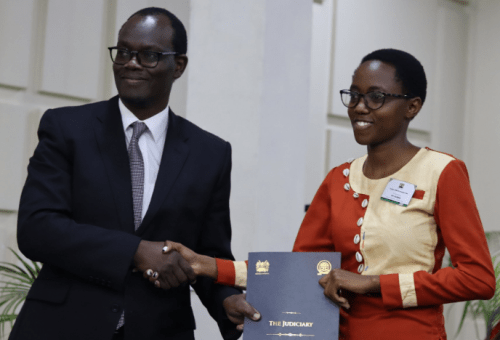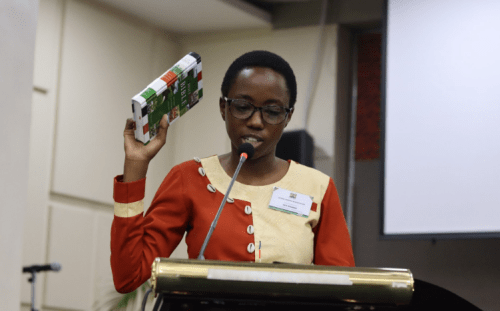Chairpersons and co-chairpersons for education funding model review sworn in
By Amanga Collins, September 28, 2024The Judiciary has sworn in the leadership of a committee appointed by President William Ruto on September 16, 2024, to review the education funding model.
Deputy Chief Registrar of the Judiciary, Paul Ndemo, led the swearing-in ceremony on Saturday.
Swearing of Chairpersons
“Deputy Chief Registrar of the Judiciary Paul Ndemo presided over the swearing-in ceremony of Chairpersons and Co-Chairpersons of the various working streams of the National Working Committee on Review of the New University Education Funding Model,” a statement from the Judiciary noted on Saturday, September 28, 2024.

The 129-member team is tasked with refining the funding model for universities and Technical and Vocational Education and Training (TVET) institutions.
Their duties include handling appeals from students regarding their eligibility for scholarships and loans, revising the structure of student loans, and reviewing the cost of academic programs in universities.
The four sub-committee heads will form the core leadership of the committee, which Japheth Michemi Ntiba chairs. Sub-committee secretaries will also serve as joint secretaries for the main committee.
In the gazette notice of September 16, 2024, President Ruto appointed Karuti Kanyinga as the chairperson for the sub-committee on the Review and Refinement of the New Funding Model, co-chaired by Dibora Zainab Hirbo.
Walubengo Waningilo will lead the sub-committee on appeals related to student categorization for scholarships and loans, co-chaired by Lucy Machugu.
Robert Oduor Otieno will chair the sub-committee on the structure of student loans, with Aron Kiprotich Bett as co-chair. Mohamed S. Rajab will head the review of university academic program costs, co-chaired by Patrick Malanga.
The committee, whose secretariat will be based at the Ministry of Education’s Jogoo House, is expected to complete its work within eight weeks, beginning September 16, 2024.
The formation of the committee followed confusion within tertiary institutions over the implementation of the new funding model.

Several issues, including disparities in student categorization and the inability to accurately determine the cost of education programs, have emerged during the trial phase.
Education CS Julius Ogamba reassured students that no one would be denied services, including access to examinations, due to delays in government fund disbursement.
The committee’s primary goal is to address these challenges and streamline the model moving forward.
